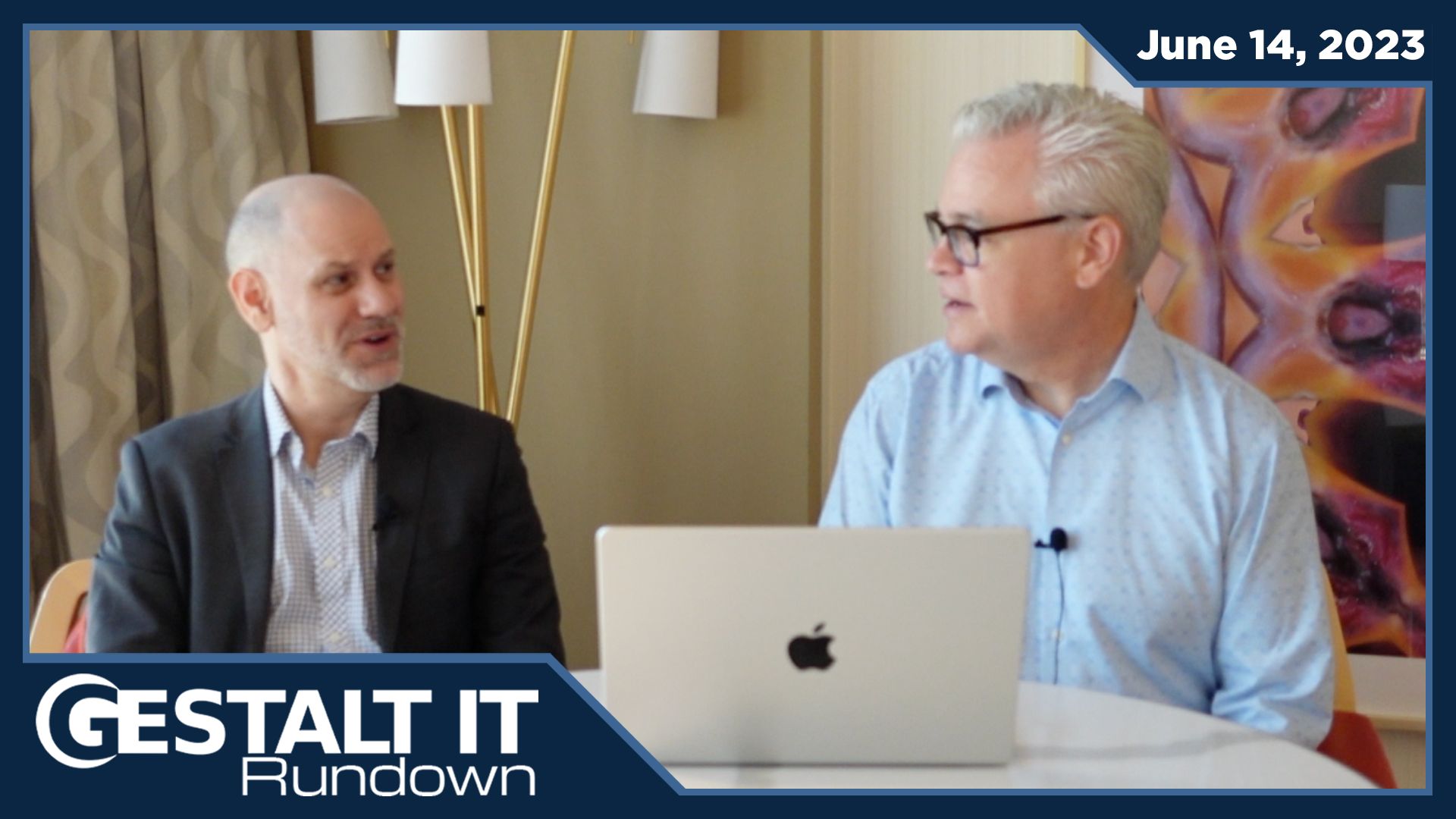Buffer has released a new work from home study, thousands have been infected thorough Microsoft Exchange and Intel announced chips for Homomorphic Encryption.We discuss these stories and much more on this week’s Rundown.
If you remember the RAM disk you’re likely old enough to get an AARP card in the mail. But ATTO is hoping you still have some money left for their new RAM disk storage technology. The SiliconDisk storage appliance is designed to provide storage, not addressable memory, to servers via RDMA over 100 Gigabit Ethernet. Data is written to an internal NAND backup unit to prevent power outages from wiping out your work.
Okta Gets Auth0 for $6.5 billion
Okta is moving to get better with APIs. They announced last week they are buying another large identity access management (IAM) provider, Auth0, for $6.5 billion. The deal brings a developer-focused platform to the reigning leader in IAM solutions. The amount paid in the all-stock transaction was somewhat surprising but given the rumors that Salesforce was looking to pick up the company that need to close the deal quickly drove the price up. Auth0 will bring new customers and new integrations to Okta to make investors happy.
Cliff over at Serve the Home has written about the release date for the new AMD EPYC processors. Code named “Milan” the new 3rd generation processors will feature 64 cores and is positioned in direct opposition to the new Intel Ice Lake Xeon offerings.The 7nm process chips are expected to post significant performance numbers across the board, running up to 4.1 GHZ.
Startup Xanadu is talking about a very enlightening development in quantum computing. They have announced a practical leap forward in optical quantum computing, using new technologies to enhance the ability for photons to be used as qubit particles in quantum computing operations. Combined with new informer technology, this 8-qubit computer is capable of producing great results for operations. The best part? it’s programmable! Using a Python-compatible API, programmers can extend the hardware to solve problems without having to rebuild the entire computer every time.
White House Looking to Get Tough on Tech Trusts
The current administration has announced a new pick for the National Economic Council and it may be worrisome to tech companies. Tim Wu, a long-time critic of tech monopolies, is the creator of the term “net neutrality” and has railed against things like walled gardens and closed tech ecosystems.The move is seen by many to be a counter to the growing power of tech companies over the past few years, where large mergers were often given a rubber stamp and the ability of mega companies to monopolize our lives was somewhat unchecked.
Exchange Exploit Infects Thousands
Those newly-released Exchange exploits last week aren’t sitting around doing nothing. A report released over the weekend shows that even the aggressive efforts to rush patches to enterprises wasn’t enough to prevent at least 30,000 organizations from being hacked through Microsoft Exchange vulnerabilities. The aggressors in this case are a heretofore unknown crew being called “Hafnium” with ties to China. The crew appears to be taking advantage of the new holes to drop web shells across their path, guaranteeing that they can get back in from anywhere whenever they want. Microsoft is continuing to push the importance of patching the exploit and updating detection tools to prevent the installation of the web shell remote access method.
Intel Announces Chips for Homomorphic Encryption
The conundrum of our world is that we need data to build the best models for AI and ML algorithms but we don’t want our personal data being used against us. If only there was a way to encrypt it somehow to allow it to be used but keep us safe and secure. The term used to describe this very thing is homomorphic encryption and Intel says they’re ready to roll out silicon to support it. The idea of fully homomorphic encryption has only been realized in the past decade or so because of the complexities needed to keep the data encrypted and process it in that encrypted state. Inte’s announcement, along with Microsoft and DARPA, is a custom silicon developed to accelerate the processing of this encrypted data from the current time of days down to minutes, a significant reduction. The announcement did not come with any specifics beyond the fact that Intel Labs has been working on this problem for a while but the outlook seems bright for potential use in the future.
Buffer Releases New Work From Home Study
Working from home is the normal of our lives now. We’ve seen a number of studies on it over the past few months but a new one from social media platform Buffer is shedding some new light on perspectives around working outside the office. The study, linked in the show notes, highlights that workers want to continue to work from home after the current pandemic state is past. Over 50% of respondents cite flexibility as their primary benefit, either from a schedule perspective or a location perspective. However, a quarter of those in the survey also noted that a struggle of working from anywhere is that you never seem to truly unplug from your work.
The Gestalt IT Rundown is a live weekly look at the IT news of the week. It broadcasts live on Facebook every Wednesday at 12:30pm ET. To watch along, “Like” our Facebook page. Be sure to subscribe to Gestalt IT on YouTube for even more weekly video content.




